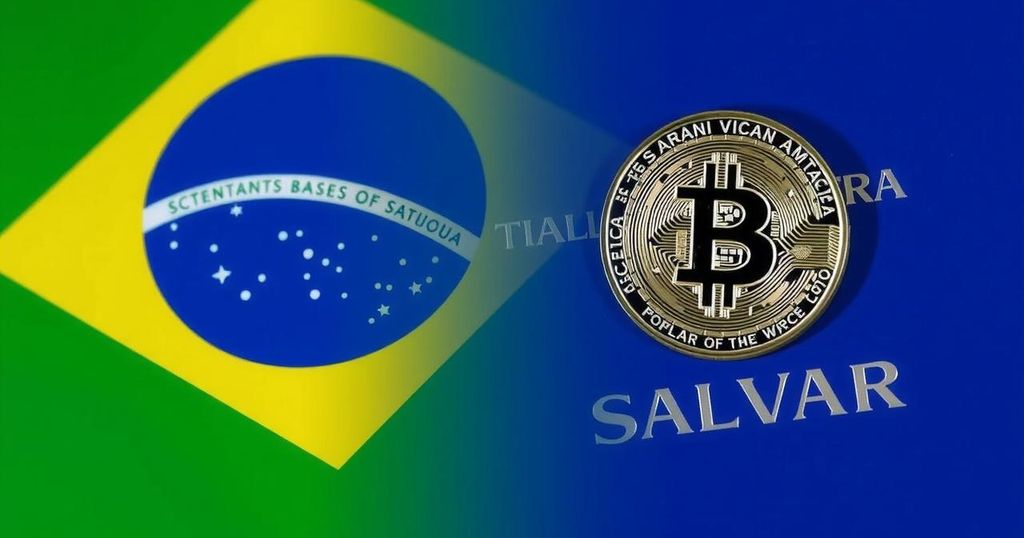This issue of Latam Insights discusses the lack of interest in El Salvador’s Bitcoin Millionaire Investor Visa Program, the consideration of a tax on stablecoin remittances in Brazil, and the introduction of USDT services by Bolivia’s Bisa Bank. These developments highlight varying approaches to cryptocurrency across Latin American countries, influencing local markets and investment strategies.
This edition of Latam Insights presents crucial updates on the cryptocurrency landscape in Latin America, notably emphasizing failures and new developments across several nations. The supposed allure of El Salvador as a hub for Bitcoin investors has diminished after a public records inquiry revealed that no passports had been issued under its Bitcoin Millionaire Investor Visa Program. Simultaneously, Brazil’s Central Bank is contemplating a tax on stablecoin remittances to regulate and capitalize on the growing market, while Bolivia’s Bisa Bank has commenced offering USDT (Tether) services to enhance local cryptocurrency adoption. The findings regarding El Salvador’s visa program raise questions about the effectiveness of its strategies to attract foreign investment. Despite efforts to present El Salvador as a welcoming destination for Bitcoin investors through its ‘Adopting Bitcoin’ program, the results have been disappointing, with the authorities reporting zero issued passports intended for individuals donating $1 million in cryptocurrency. Furthermore, Brazil’s Central Bank is strategizing the introduction of a taxation framework on stablecoin remittances, aiming to incorporate this tax into comprehensive cryptocurrency regulations anticipated for release next year. This could involve distinguishing licenses for various cryptocurrency services, introducing a structured regulatory approach to this increasingly popular asset class. In contrast, Bolivia is making strides toward integrating cryptocurrencies into its financial system, evident from Bisa Bank’s introduction of USDT services. This initiative signifies the banking sector’s growing acceptance of cryptocurrency as a viable financial tool, providing users with a digital alternative reinforced by stability and trust.
The cryptocurrency landscape in Latin America has been evolving rapidly, with nations like El Salvador pioneering efforts to embrace digital currencies officially. El Salvador’s decision to adopt Bitcoin as legal tender in 2021 marked a significant shift, aiming to attract investment through various programs. However, the recent revelations about the ineffectiveness of its Bitcoin Millionaire Investor Visa Program highlight challenges in drawing actual investors. Meanwhile, Brazil is considering regulatory frameworks and taxation measures concerning the booming cryptocurrency market, particularly related to stablecoins. As these digital assets become increasingly essential in global finance, Brazil aims to implement regulations that secure financial transactions and stimulate economic growth. On the other hand, Bolivia’s financial institutions are gradually adopting cryptocurrencies, with banks beginning to offer services involving stablecoins like USDT, reflecting a growing acceptance and integration of cryptocurrencies into everyday financial services. The interaction of these developments points to a regional trend of both embracing and regulating cryptocurrency as countries respond to evolving financial landscapes.
The recent developments regarding the cryptocurrency sector in Latin America illustrate a dynamic and transformative environment. El Salvador’s failure to generate interest in its facilitated investment program contrasts sharply with Brazil’s proactive regulatory approach and Bolivia’s advancements in stablecoin services. The situation sets a telling narrative about the challenges and opportunities present in the realm of cryptocurrencies, pointing towards a potential future where regulatory clarity may enhance or hinder growth across the region.
Original Source: news.bitcoin.com







